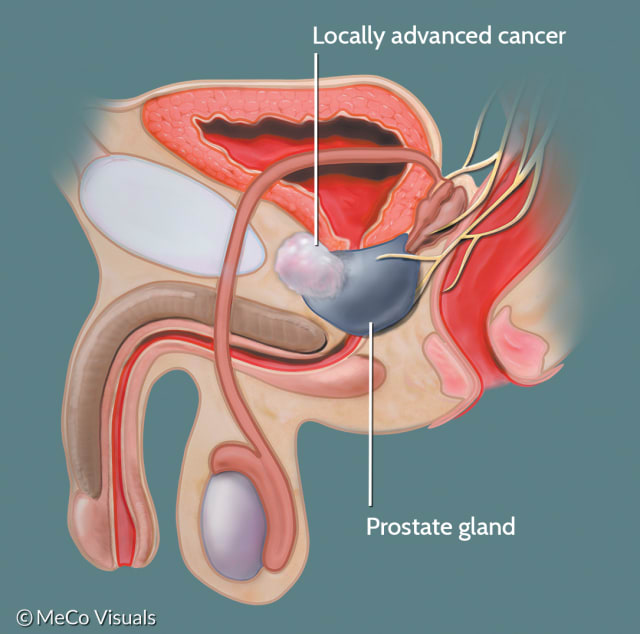The Hidden Link Between Stress and Libido: How to Manage Both Effectively

Understanding the Connection between Stress and Libido

Stress and libido are two interconnected aspects of our lives that can greatly impact our overall well-being and satisfaction. While it is normal for stress to occasionally affect our libido, chronic or excessive stress levels can have a more profound and long-lasting impact on our sexual desire and function.
When we experience stress, our body releases a cascade of hormones, such as cortisol and adrenaline, which trigger the “fight-or-flight” response. This response redirects blood flow away from non-essential functions, including sexual arousal and desire, towards vital organs and muscles needed for survival. As a result, the body’s natural response to stress can lead to decreased libido and sexual performance.
Moreover, the emotional and psychological toll of stress can also have a significant impact on our sexual desire. Stress can lead to feelings of anxiety, depression, and fatigue, all of which can diminish one’s interest in sexual activities. Additionally, stress can disrupt the delicate balance of neurotransmitters in the brain, affecting mood and emotional well-being, further exacerbating the decline in libido.
Understanding the complex connection between stress and libido is crucial in addressing and managing these issues effectively. By recognizing the various factors that contribute to this connection, we can take steps towards reducing stress levels, improving our overall well-being, and enhancing our sexual satisfaction. In the following sections, we will delve deeper into the impact of stress on libido, explore the physical and psychological factors at play, and provide strategies for managing stress to improve libido and sexual function.
Exploring the Impact of Stress on Libido

Stress is an inevitable part of life, and its impact can be felt in various aspects of our well-being, including our libido. When it comes to sexual desire and performance, prolonged or excessive stress can have a significant effect. While occasional stress may not have a substantial impact on libido, chronic stress can disrupt the delicate balance of hormones and neurotransmitters that are involved in sexual arousal and desire.
One of the primary ways in which stress affects libido is through its influence on the production and regulation of sex hormones, such as testosterone. Stress triggers the release of cortisol, often referred to as the “stress hormone.” When cortisol levels are consistently elevated due to chronic stress, the body’s production of testosterone may be suppressed. Testosterone is not only important for sexual function but also plays a crucial role in maintaining overall health and well-being. Consequently, decreased testosterone levels can lead to a decrease in sexual desire and performance.
Additionally, stress can affect libido by impacting the intricate relationship between the mind and body. High levels of stress can lead to feelings of anxiety, depression, and fatigue, all of which can contribute to a decrease in sexual desire. Moreover, stress can cause muscle tension and physical discomfort, making it challenging to relax and enjoy sexual experiences. These psychological and physical effects of stress can create a vicious cycle, where stress leads to decreased libido, which in turn increases feelings of stress and exacerbates the problem. As a result, it is crucial to explore effective strategies for managing stress in order to maintain a healthy libido and overall sexual well-being.
Recognizing the Signs of Stress-Related Sexual Dysfunction

Stress can have a significant impact on one’s overall well-being, and it is no surprise that it can also affect one’s sexual function. In the midst of a stressful period, individuals may experience various signs of stress-related sexual dysfunction. These signs can manifest in different ways for men and women, and it is crucial to recognize them in order to address the issue effectively.
For men, stress-related sexual dysfunction often presents as erectile dysfunction (ED), commonly known as impotence. Men may find it challenging to achieve or maintain an erection during times of high stress. This can lead to frustration and a loss of confidence, causing further stress and perpetuating a cycle of sexual dysfunction. Additionally, stress can also lead to a decrease in sexual desire, making it even more difficult for men to engage in sexual activities. It is important for men to understand that experiencing occasional difficulties with sexual performance is normal, but persistent issues may be a sign of stress-related sexual dysfunction that requires attention and treatment.
In women, stress-related sexual dysfunction can manifest as a decrease in sexual desire and arousal. Stress hormones, such as cortisol, can disrupt the delicate hormonal balance necessary for a healthy and fulfilling sexual experience. This can result in reduced lubrication, discomfort during intercourse, and difficulty achieving orgasm. Furthermore, stress can also lead to feelings of anxiety and self-consciousness, causing women to withdraw from sexual intimacy altogether. It is essential for women to recognize these signs of stress-related sexual dysfunction and seek professional guidance to address the underlying causes and find effective solutions.
Recognizing the signs of stress-related sexual dysfunction is the first step towards improving one’s sexual well-being. By understanding how stress affects our bodies and sexual function, we can take proactive measures to manage and reduce stress levels. In the upcoming sections, we will delve deeper into the psychological and physical factors influencing libido during times of stress. Additionally, we will explore various techniques and lifestyle changes that can help alleviate stress and enhance sexual function.
• Stress can impact sexual function in both men and women
• Men may experience erectile dysfunction (ED) during times of high stress
• Stress can also decrease sexual desire in men, making it difficult to engage in sexual activities
• Women may experience a decrease in sexual desire and arousal due to stress hormones disrupting hormonal balance
• Stress-related sexual dysfunction in women can lead to discomfort during intercourse and difficulty achieving orgasm
• Women may also feel anxious and self-conscious, causing them to withdraw from sexual intimacy altogether
• Recognizing the signs of stress-related sexual dysfunction is crucial for addressing the issue effectively
• Understanding how stress affects our bodies and sexual function is key to managing and reducing stress levels
• Psychological and physical factors influence libido during times of stress
• Techniques and lifestyle changes can help alleviate stress and enhance sexual function.
Identifying the Psychological Factors Influencing Libido
Psychological factors play a significant role in influencing libido, or the sexual desire and drive of an individual. Understanding these psychological factors can help individuals and healthcare professionals identify and address underlying issues that may be impacting sexual function.
One key psychological factor is stress. Stress can have a profound effect on libido, as it can lead to feelings of anxiety, low mood, and fatigue, which can all contribute to a decrease in sexual desire. Stress can also disrupt hormone levels in the body, affecting the regulation of libido. Additionally, stress can cause individuals to prioritize other aspects of their lives over sexual activity, further impacting libido. It is important to recognize and manage stress effectively in order to improve and enhance libido. Techniques such as stress-reducing activities, mindfulness, and healthy communication methods can be beneficial in managing stress and improving overall sexual wellness.
Uncovering the Physical Factors Affecting Libido during Stress
During periods of stress, there are several physical factors that can impact libido in both men and women. One of the primary factors is the release of stress hormones such as cortisol, which can disrupt the normal hormonal balance in the body. When cortisol levels are elevated for extended periods, it can lead to decreased production of testosterone, the hormone responsible for sexual desire in both men and women. This hormonal imbalance can result in a decreased libido and may also contribute to other sexual dysfunctions such as difficulty achieving orgasm or erectile dysfunction in men.
In addition to hormonal changes, stress can also affect the cardiovascular system, which plays a crucial role in sexual function. When the body is under stress, the blood vessels constrict, reducing blood flow to the genitals. This decrease in blood flow can make it more difficult for both men and women to become sexually aroused and can result in decreased sensitivity in the genital area. Furthermore, stress-induced muscle tension can also interfere with sexual function, causing discomfort or pain during intercourse.
To mitigate the physical factors affecting libido during stress, it is important to focus on stress management techniques such as exercise, relaxation exercises, and healthy lifestyle choices. Regular exercise increases blood flow and releases endorphins, which can help combat the negative effects of stress on libido. Engaging in relaxation techniques such as deep breathing, meditation, or yoga can also help reduce muscle tension and promote relaxation, improving both physical and sexual well-being. Furthermore, adopting a nutritious diet and maintaining a healthy weight can support hormonal balance and overall sexual health. By addressing these physical factors and implementing stress-reducing strategies, individuals can support their libido and enhance their overall sexual satisfaction.
Certainly! Here’s information on the physical factors affecting libido during stress presented in a table format:
| Physical Factors Affecting Libido during Stress | Key Factors and Their Impact |
|---|---|
| Cortisol Levels | – Impact: Elevated cortisol levels during chronic stress may lead to decreased libido. |
| – Explanation: Cortisol, the stress hormone, can interfere with sex hormone production. | |
| Sex Hormone Imbalance | – Impact: Stress may disrupt the balance of sex hormones like testosterone and estrogen. |
| – Explanation: Imbalances can lead to changes in sexual desire and function. | |
| Blood Circulation | – Impact: Chronic stress can contribute to reduced blood flow, affecting arousal and response. |
| – Explanation: Adequate blood circulation is crucial for sexual function. | |
| Fatigue and Energy Levels | – Impact: Persistent stress may lead to fatigue, reducing overall energy levels. |
| – Explanation: Low energy can contribute to decreased interest in sexual activity. | |
| Sleep Disruptions | – Impact: Stress-related sleep disturbances can negatively affect sexual desire and performance. |
| – Explanation: Quality sleep is essential for hormonal regulation and overall well-being. | |
| Muscle Tension and Body Image | – Impact: Stress-induced muscle tension and negative body image may impact sexual confidence. |
| – Explanation: A relaxed body and positive body image contribute to sexual well-being. | |
| Hormonal Changes in Menopause | – Impact: Menopausal women may experience hormonal shifts affecting libido during stress. |
| – Explanation: Hormonal changes during menopause can influence sexual desire. | |
| Chronic Health Conditions | – Impact: Stress can exacerbate existing health conditions that affect sexual function. |
| – Explanation: Managing chronic conditions is crucial for maintaining sexual health. | |
| Medication Side Effects | – Impact: Some medications for stress or related conditions may have sexual side effects. |
| – Explanation: Communication with healthcare providers can help manage side effects. | |
| Body’s Fight or Flight Response | – Impact: Stress triggers the body’s fight or flight response, diverting resources away from non-essential functions. |
| – Explanation: During stress, the body prioritizes survival over reproductive functions. | |
| Reproductive System Regulation | – Impact: Stress may affect the hypothalamus-pituitary-gonadal axis, influencing reproductive function. |
| – Explanation: This axis regulates sex hormones and plays a role in sexual function. |
The Role of Hormones in Regulating Libido and Managing Stress
Various hormones play a significant role in regulating libido and managing stress in both men and women. One such hormone is cortisol, commonly known as the “stress hormone.” When the body experiences stress, cortisol levels rise, which can have a suppressive effect on sexual desire and function. This is because high levels of cortisol can inhibit the production of testosterone, the hormone responsible for libido and overall sexual well-being. Research has shown that chronic stress and elevated cortisol levels can negatively impact sexual desire, arousal, and performance.
In addition to cortisol, other hormones such as estrogen, progesterone, and testosterone also contribute to the regulation of libido. For instance, in women, fluctuations in estrogen and progesterone levels throughout the menstrual cycle can affect sexual desire. During the ovulation phase, when estrogen levels are at their highest, women generally experience an increase in sexual desire. On the other hand, during the luteal phase when progesterone levels rise, sexual desire may decrease.
While hormonal imbalances can have a significant impact on libido and stress management, it is important to note that addressing these imbalances requires a multidimensional approach. This may include lifestyle modifications, such as reducing stress levels, getting adequate sleep, and adopting a healthy diet. Moreover, hormone replacement therapy may be considered in some cases, under the guidance of a healthcare professional. Understanding the intricate relationship between hormones, libido, and stress can be pivotal in developing effective strategies to manage and enhance sexual well-being.
Exploring the Effects of Chronic Stress on Sexual Desire
Chronic stress is known to have a significant impact on various aspects of our health, including our sexual desire. When we experience ongoing stress, our body releases stress hormones such as cortisol, which can disrupt the delicate balance of hormones and neurotransmitters involved in sexual function. This disruption can lead to a decrease in sexual desire and affect our overall sexual satisfaction.
One of the primary ways in which chronic stress affects sexual desire is by interfering with the production of testosterone. Testosterone is a hormone that plays a crucial role in sexual desire in both men and women. When stress levels are high, the body prioritizes the production of stress hormones over sex hormones, leading to a decrease in testosterone levels. This hormonal imbalance can result in a decrease in sexual desire and may even contribute to sexual dysfunction.
Additionally, chronic stress can also affect the psychological factors that influence libido. Stress can dampen mood, increase fatigue, and impair cognitive function, all of which can negatively impact sexual desire. Furthermore, the emotional toll of chronic stress, such as feelings of anxiety, depression, or overwhelm, can also contribute to a decrease in sexual desire.
Understanding the effects of chronic stress on sexual desire is crucial for identifying and addressing issues related to stress-related sexual dysfunction. By recognizing the various ways in which stress can hinder our sexual desire, we can take proactive steps to manage stress effectively and improve our overall sexual well-being.
Understanding the Link Between Stress and Erectile Dysfunction
Erectile dysfunction (ED) is a common issue that affects many men around the world. It refers to the inability to achieve or maintain an erection necessary for sexual intercourse. While there can be various causes for this condition, one factor that has been found to significantly contribute to erectile dysfunction is stress.
Stress is a normal part of life and is often triggered by factors such as work pressure, financial worries, relationship problems, or even health concerns. When the body experiences stress, it releases stress hormones such as cortisol, which can have a negative impact on sexual function. Chronic stress can lead to a disruption in the delicate balance of hormones involved in achieving and maintaining an erection, thereby contributing to erectile dysfunction.
Research has shown that stress can affect both the physical and psychological aspects of sexual health. Physically, stress can lead to the constriction of blood vessels, including those responsible for blood flow to the penis. This constriction can impede the normal erectile process and result in difficulties in achieving an erection. Additionally, the psychological effects of stress, such as anxiety and depression, can further exacerbate the problem by interfering with sexual arousal and desire.
It is important to note that while stress can be a contributing factor to erectile dysfunction, it is not the sole cause. Other underlying medical conditions, such as cardiovascular disease or diabetes, may also play a role. Therefore, it is crucial for men experiencing persistent erectile difficulties to seek medical advice from a healthcare professional who can provide a thorough evaluation and determine the appropriate treatment options.
Managing Stress to Improve Libido: Lifestyle Changes
Stress can have a detrimental impact on libido, but there are lifestyle changes that individuals can implement to effectively manage stress and improve their sexual desire. One of the key lifestyle changes is maintaining a healthy diet. Consuming a balanced diet rich in fruits, vegetables, whole grains, lean proteins, and healthy fats can provide the body with essential nutrients and help regulate hormone production. Studies have shown that certain nutrients, such as omega-3 fatty acids, vitamin D, and zinc, play a crucial role in sexual function and can help reduce stress levels.
In addition to a healthy diet, regular exercise is another vital lifestyle change that can positively impact both stress management and libido. Engaging in physical activity on a consistent basis not only helps reduce stress and improve overall mental well-being but also enhances blood circulation and promotes the release of endorphins, commonly known as “feel-good” hormones. These endorphins can contribute to a heightened sense of pleasure and sexual desire. Whether it’s aerobic exercises like jogging or cycling, strength training, or mind-body exercises like yoga or tai chi, finding an exercise routine that suits individual preferences and capabilities is essential for managing stress and boosting libido.
Implementing Stress-Reducing Techniques for Enhanced Sexual Function
Stress can have a significant impact on sexual function, leading to decreased libido and sexual dysfunction. Implementing stress-reducing techniques can help enhance sexual function and improve overall sexual satisfaction. One effective technique is practicing relaxation exercises, such as deep breathing and progressive muscle relaxation, which can help reduce stress levels and promote a state of calmness. These exercises can be easily incorporated into daily routines and can be particularly beneficial before engaging in sexual activity.
Another stress-reducing technique that can enhance sexual function is engaging in mindfulness and meditation practices. Mindfulness involves focusing one’s attention on the present moment, while meditation helps to cultivate a sense of relaxation and mental clarity. Research has shown that practicing mindfulness and meditation can reduce stress, anxiety, and depression, and improve overall well-being. By incorporating these techniques into your daily life, you can create a sense of balance and calmness that can positively impact your sexual function.
Exploring the Benefits of Regular Exercise on Libido and Stress Management
Regular exercise has been shown to have numerous benefits on both libido and stress management. When it comes to libido, exercise has been found to increase sexual desire and improve sexual function in both men and women. One study found that men who exercised regularly had higher levels of testosterone, which is known to play a role in sexual desire. In addition, regular exercise can improve blood flow to the genital area, leading to enhanced arousal and sexual pleasure.
Exercise is also an effective tool for managing stress, which can have a negative impact on libido. Engaging in physical activity releases endorphins, which are natural mood boosters that can help reduce stress and anxiety. Regular exercise has been found to improve sleep quality, reduce symptoms of depression, and increase overall feelings of well-being. By incorporating exercise into your routine, you can effectively manage stress levels, leading to a healthier libido and a more satisfying sex life.
In summary, regular exercise has numerous benefits on both libido and stress management. By increasing sexual desire, improving sexual function, and reducing stress levels, exercise can enhance overall sexual wellness. Incorporating physical activity into your daily routine can be a simple and effective way to improve your libido and manage stress, leading to a healthier and more fulfilling sex life.
The Role of Mindfulness and Meditation in Enhancing Libido and Reducing Stress
Mindfulness and meditation have gained significant recognition for their role in promoting overall well-being and reducing stress. These practices offer numerous benefits, including enhancing libido and alleviating sexual difficulties caused by stress.
Research suggests that mindfulness and meditation can have a positive impact on libido by reducing stress levels. Chronic stress can lead to hormonal imbalances and weaken sexual desire. Engaging in regular mindfulness and meditation practices has been shown to decrease the production of stress hormones like cortisol and increase the release of endorphins, which contribute to a sense of calm and relaxation. By effectively managing stress, individuals may experience improved sexual function and heightened libido.
Furthermore, mindfulness and meditation cultivate awareness and a deeper connection with one’s body and emotions. By being fully present in the moment and paying attention to physical sensations and emotions, individuals can develop a better understanding of their sexual desires, preferences, and boundaries. This self-awareness can enhance intimacy and communication with partners, leading to a greater sense of sexual satisfaction and increased libido.
In conclusion, incorporating mindfulness and meditation into daily routines can be beneficial for both reducing stress and enhancing libido. These practices promote relaxation, reduce stress hormones, and increase awareness and self-acceptance, all of which contribute to improved sexual function. By adopting these techniques, individuals can take proactive steps towards managing stress and enjoying a fulfilling and satisfying sexual life.
Seeking Professional Help: Therapy and Counseling for Stress and Libido Management
Therapy and counseling can be valuable tools for managing stress and improving libido. Seeking professional help allows individuals to explore the underlying causes of their stress-related sexual dysfunction and develop effective strategies for addressing these issues.
Therapists and counselors can provide a safe and supportive environment for individuals to discuss their concerns and fears regarding their sexual health. Through open and honest communication, they can help individuals identify the psychological factors that may be contributing to their decreased libido. This may include issues such as anxiety, depression, relationship conflicts, or past traumas. By uncovering and addressing these underlying psychological factors, therapy can help individuals regain their sexual confidence and desire.
Additionally, therapy and counseling can also address the impact of stress on overall well-being and provide individuals with valuable stress-management techniques. Chronic stress can have a detrimental effect on both physical and mental health, leading to decreased libido. Through guided therapy sessions, individuals can learn strategies to cope with and reduce stress, such as mindfulness exercises, relaxation techniques, and cognitive-behavioral therapy. By effectively managing stress, individuals may experience an improvement in their libido and overall sexual satisfaction.
In conclusion, seeking professional help through therapy and counseling can be an important step in managing stress and improving libido. By addressing psychological factors, exploring stress-management techniques, and improving overall well-being, individuals can take proactive steps towards enhancing their sexual function and intimacy.
Improving Intimacy and Communication to Reduce Stress and Enhance Libido
Effective communication and intimacy play a crucial role in reducing stress and enhancing libido. It is essential for couples to establish open lines of communication, allowing them to express their needs, fears, and concerns without judgment. This promotes emotional connection and understanding, fostering a sense of intimacy that can alleviate stress and improve sexual desire.
One way to improve intimacy and communication is by setting aside dedicated time for meaningful conversations. This can involve discussing individual stressors, understanding each other’s perspectives, and finding ways to support one another. Active listening is also key in fostering effective communication, where both partners are fully engaged and genuinely interested in understanding each other’s emotions and experiences.
In addition to verbal communication, non-verbal cues can also strengthen intimacy. Simple gestures like holding hands, hugging, or cuddling can help release oxytocin, a hormone associated with bonding and reducing stress. Engaging in activities that promote physical touch and closeness, such as massage or shared hobbies, can further enhance intimacy and provide stress relief.
By fostering effective communication and nurturing intimacy, couples can create a supportive and understanding environment that reduces stress and enhances libido. This foundation can pave the way for a satisfying sexual relationship despite the challenges posed by stress.
What is the connection between stress and libido?
Stress can significantly impact libido by affecting hormone levels, causing psychological factors such as anxiety or depression, and leading to physical factors like fatigue or decreased blood flow.
How does stress affect libido?
Stress can decrease sexual desire, cause difficulties in achieving or maintaining arousal, and contribute to sexual dysfunction.
What are the signs of stress-related sexual dysfunction?
Signs of stress-related sexual dysfunction may include a decreased interest in sex, difficulty achieving orgasm, erectile dysfunction in men, and pain during intercourse.
What psychological factors influence libido?
Psychological factors such as anxiety, depression, relationship issues, body image concerns, and self-esteem can all affect libido.
What physical factors affect libido during stress?
Physical factors like fatigue, lack of sleep, chronic illnesses, medication side effects, and hormonal imbalances can impact libido during times of stress.
How do hormones regulate libido and manage stress?
Hormones like testosterone, estrogen, and cortisol play a role in regulating sexual desire and responding to stress. Balancing hormone levels can help improve libido and manage stress.
What are the effects of chronic stress on sexual desire?
Chronic stress can lead to a decreased libido, reduced sexual satisfaction, and increased sexual problems such as erectile dysfunction or loss of interest in sex.
Is there a link between stress and erectile dysfunction?
Yes, stress can contribute to erectile dysfunction by affecting blood flow, hormone levels, and causing psychological factors such as performance anxiety.
What lifestyle changes can help manage stress and improve libido?
Lifestyle changes like getting enough sleep, practicing relaxation techniques, maintaining a healthy diet, and engaging in regular exercise can help manage stress and enhance libido.
How can stress-reducing techniques enhance sexual function?
Stress-reducing techniques like deep breathing exercises, mindfulness, and meditation can help relax the mind and body, reducing stress and improving sexual function.
How does regular exercise benefit libido and stress management?
Regular exercise increases blood flow, reduces stress hormones, boosts mood, and improves body image, all of which can enhance libido and help manage stress.
What is the role of mindfulness and meditation in enhancing libido and reducing stress?
Mindfulness and meditation practices can help reduce stress, increase self-awareness, improve emotional well-being, and enhance sexual desire and satisfaction.
Should I seek professional help for stress and libido management?
If stress and libido issues persist or significantly impact your quality of life, it may be beneficial to seek professional help through therapy or counseling to address underlying causes and develop effective coping strategies.
How can improving intimacy and communication reduce stress and enhance libido?
By fostering open and honest communication with your partner, addressing relationship issues, and prioritizing intimacy, you can reduce stress levels and enhance libido by creating a supportive and satisfying sexual environment.






